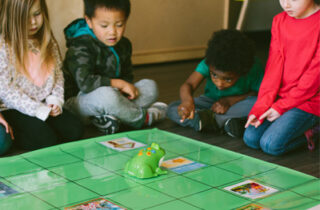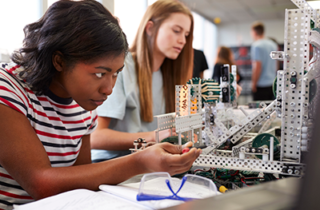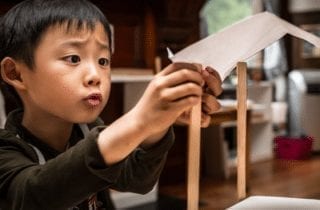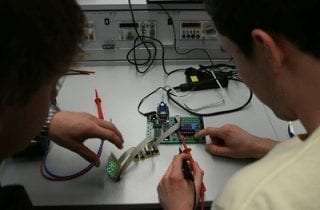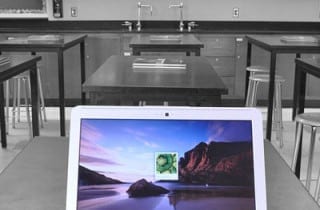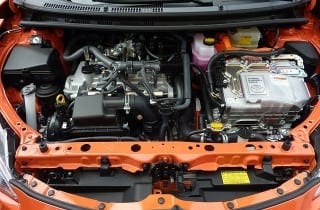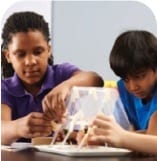Presented by Dr. Brian Mowry, Author, Director of Content for Professional Learning, Frog Street
Moderated by Jody Martin, Senior Developmental Editor, Frog Street
Presented by Dr. Jennifer Stimpson, Chief Programs Officer, T.D. Jakes Foundation
Even with the NGSS’s emphasis on engineering, there’s still a feeling that in preschool and kindergarten, teachers shouldn’t place as much emphasis on the E in STEM. While four-year-olds can’t compete with even third graders in engineering, they can learn and benefit from modified lessons. Nia Keith, Director of Professional Development for EiE, Museum of Science, Boston, gave attendees insights into engineering in early education in the edWebinar, “STEM in Early Education: Empowering Problem-Solving.”
In this edWebinar, Carol Mueller explores the four stages of how real engineers work and offer practical tips to incorporate them in the science classroom.
In this edWebinar, Nia Keith discusses research, tips and strategies for how engineering helps children develop important 21st century skills.
In this webinar, Terry Young, a veteran librarian and science educator, will take us on a STEMulating discovery of STEM and NGSS.
In this webinar, learn how to use Spark 101’s free real-world, TEKS-connected case study videos to engage your students in problem-based learning—with authentic problems from business, government, nonprofits, and academia.
In this webinar, you’ll learn practical classroom applications of five top-rated digital tools: National Geographic Education, Google Earth, PBS Learning Media, KQED Do Now, and Nova Labs.
The shortage of professionals with advanced skills in science, technology, engineering, and mathematics (STEM) is a real challenge for companies and the US economy. It presents a tremendous opportunity for today’s students who have a passion for STEM—the most in-demand, rewarding college degrees and jobs are in the STEM fields.
The Standards for Mathematical Practice and the Science & Engineering Practices have much in common. edWeb’s Implementing Common Core Standards in Math community’s summer three-part webinar series explores these connections and their implications for instruction, in science, in mathematics, and in integrated STEM experiences.


